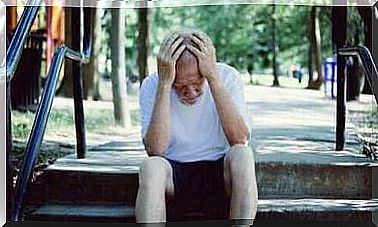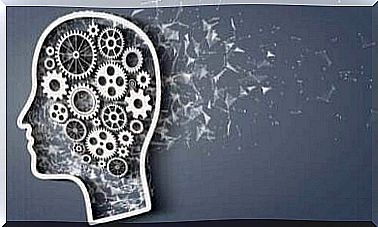Destructive Criticism: Nobody Wins

Sometimes criticism and judgment can be constructive and helpful. But more often than not, there is no constructive intention, and there is harmful, destructive criticism. For some reason, there is always someone who projects their negativity and insecurity on others by judging or criticizing. People who make it their goal to point out all the “mistakes” they see in others.
We have all fallen victim to these people at some point. Sometimes we have been these people. In fact, the act of criticizing someone has become so common that it is the focus of many television and radio programs. It’s a common joke or plot. Many people watch these programs, but why? Why do we criticize in this way?
Understanding the critique mechanism can help us to understand how this pattern of behavior works. Therefore, we have included some of the main reasons why people criticize and judge others.
Everything can be criticized, it’s just a matter of using your imagination.
Feelings of inferiority
Feeling inferior can motivate people to criticize others. Other times, feelings of superiority are the motivating factor. For many, playing superior is just a disguise for feelings of inferiority. They try to make themselves feel safer.
Then they try to satisfy the need to feel powerful and superior by criticizing others or watching TV shows that focus on the mistakes of others.

2. Dissatisfaction with oneself
Sometimes we criticize others because they reflect our own shortcomings. When we criticize others, we deceive ourselves into believing that the problem is with other people and not us. We criticize when we want to convince ourselves that others are also wrong and that they are worse than our own.
So, by criticizing the same thing over and over again, we reflect what we dislike about ourselves. We project our fears and insecurities. In fact, when we do not accept our mistakes and instead look for them in others, we generate rejection and activate criticism. This phenomenon is known as “self-denial”.
Jealous and jealous people are the biggest generators of criticism. When they feel inferior, they use criticism as a defense. They diminish the qualities of the other person and magnify their faults, whether real or imagined.
These people do not tend to engage in self-criticism, their energies are directed towards persecuting others. They ignore themselves because they are afraid of what they see.
Need to be part of the group
Sometimes people criticize others because of social relationships. Studies show us that in order to make ourselves a part of one group, we criticize those of another group. Criticism, in this sense, works to strengthen our sense of belonging and can convince others that we are part of their group.
In such cases, criticism will be conveyed by the group’s attitude to it. If encouraged in the group, it will most likely happen more often and with more intensity. On the other hand, if the members of the group make it clear that destructive criticism is being looked down upon, whoever wants to feel part of the group will turn to other behaviors.
Finally, when we think we are experts in something, we can begin to criticize others for showing how much we know and affirming our authority. This stems from a lack of self-confidence and a desire for admiration from others.
4. Revenge and cowardice
Criticism can also be based on revenge. There may be situations that were left unresolved or without forgiveness. In these cases, we can turn to destructive criticism as a form of humiliation or punishment. When we are not brave enough to talk face to face with someone who has hurt us, we turn to destructive criticism to alleviate our frustration, anger, or pain.

Destructive criticism such as revenge is closely linked to the use of manipulation for revenge. Sometimes we criticize others with the perverse intention of separating them from their friends, or making them feel alone.
5. Narcissism and selfishness
When we feel that we deserve special treatment but do not receive it, we may feel that others owe us something. Sometimes, because of a narcissistic feeling, we feel that others should be more helpful. When we feel this is the case, we can use criticism to complain, degrade, and make the other person feel bad.
Attitude towards criticism
Criticism is undoubtedly inevitable. It will always come into our lives in one form or another. In this sense, as explained by Stamateas, “three-thirds law” is used. One third consists of people who love us, another of people who hate us. The last third consists of people who do not know us, but still have an opinion about us.
However, we must not underestimate the negative and destructive power that critics in this third category may have. Winston Churchill compared the pain of criticism to physical pain. Furthermore, a recent study has revealed that rejection, criticism and humiliation are all treated by the same area of the brain that is responsible for treating physical pain.
Destructive criticism: Better from a distance
To live within this toxic epidemic of destructive criticism, there is an important guideline we must follow: move away or protect yourself from negative people. These negative people dedicate themselves to poisoning others.

The most sensible thing to do is to maintain your distance, especially when others try to make you complicit in their criticism. Do not forget that interaction with this type of person can harm our emotional and social health.
In short, the key is not to let yourself be polluted by the negativity of others and not to take things personally when you are the target of destructive criticism. Remember that criticism says more about the person who gives it than the person who receives it. It’s their problem, not ours.








